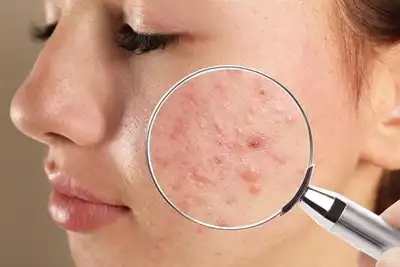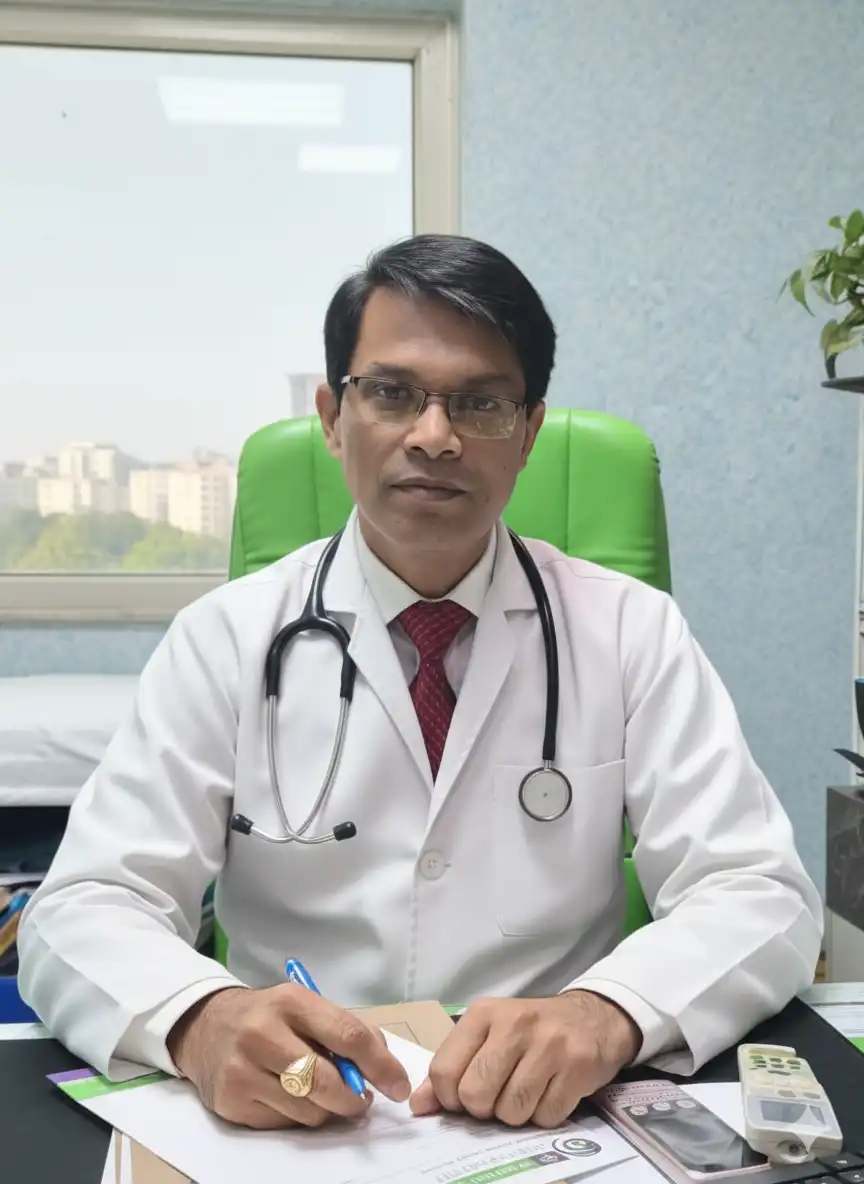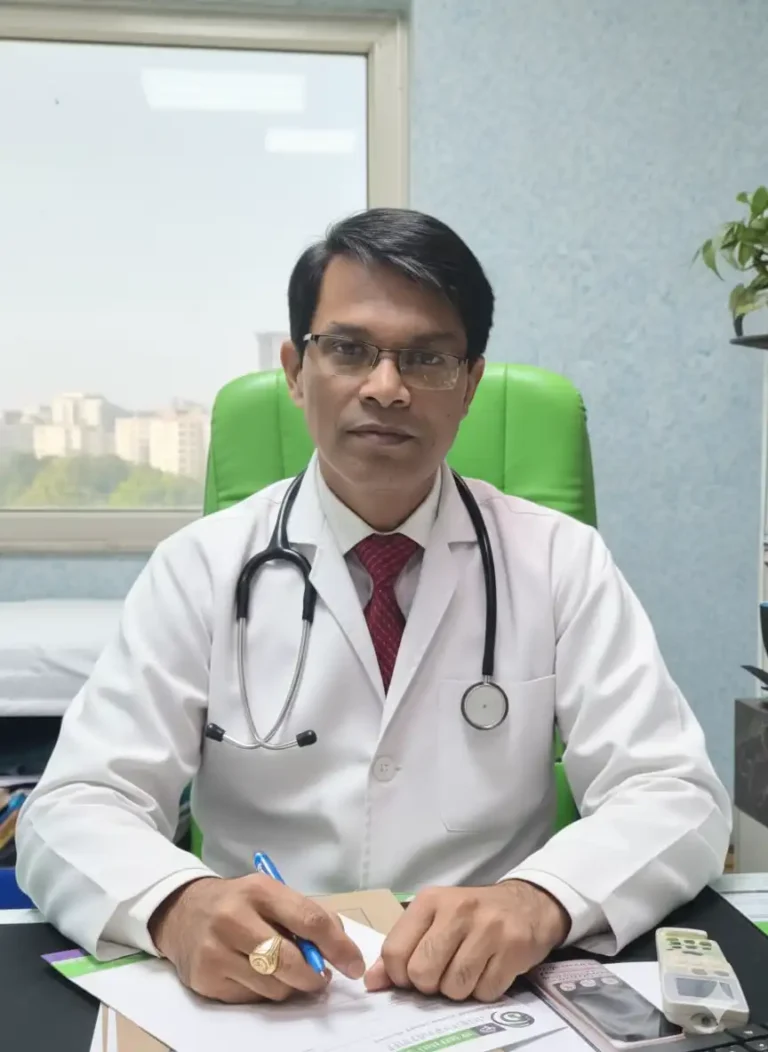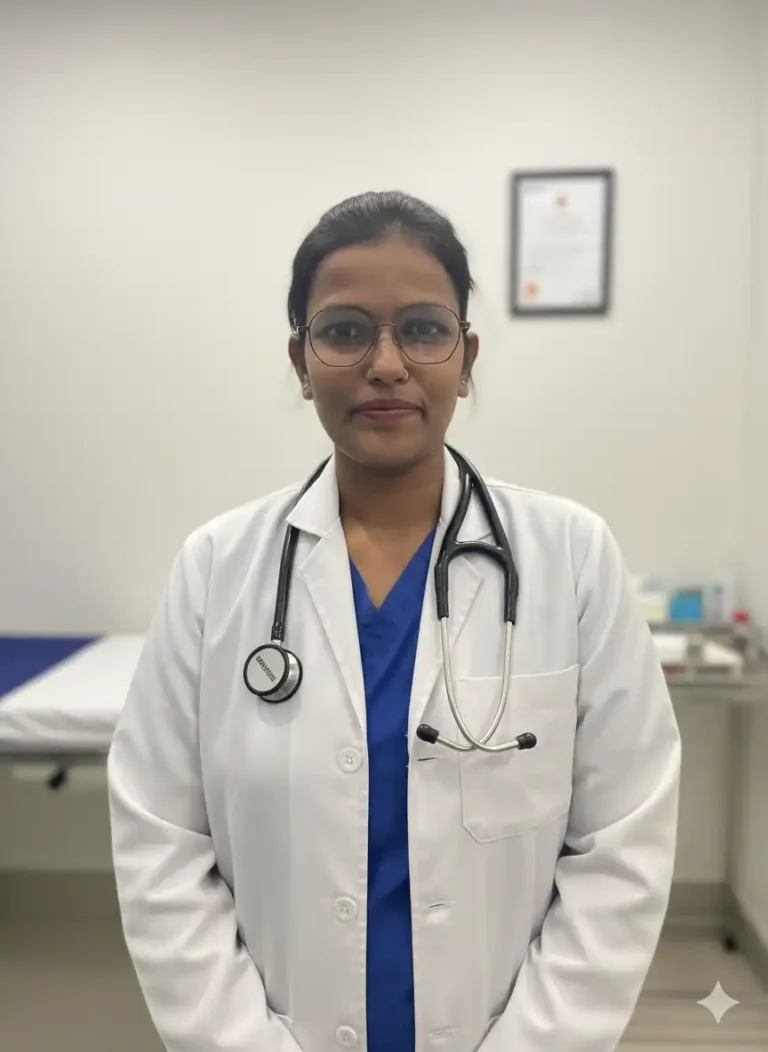
What is Acne?
Acne is a common skin condition that occurs when hair follicles become clogged with oil (sebum), dead skin cells, and bacteria. It often appears as pimples, blackheads, or whiteheads, mostly on the face, chest, shoulders, and back.

Acne is most common in teenagers due to hormonal changes, but it can affect adults, too. While not a dangerous condition, it can cause scars, dark spots, and low confidence if left untreated. The good news is that acne is manageable with the right skincare and treatment.
Common Symptoms of Acne
-
Whiteheads (closed plugged pores) – small, flesh-colored bumps under the skin.
-
Blackheads (open plugged pores) – small dark spots on the skin’s surface.
-
Papules – small, red, raised bumps that may feel tender.
-
Pustules (pimples) – red, inflamed bumps with white or yellow pus at the tip.
-
Nodules – large, painful, solid lumps beneath the skin.
-
Cysts – deep, pus-filled, painful lumps that can cause scarring.
Other Signs Associated with Acne
-
Skin redness around pimples.
-
Swelling or inflammation in affected areas.
-
Pain or tenderness, especially in cases of cystic acne.
-
Dark spots or scars are left behind after pimples heal.
Acne commonly appears on the face, forehead, chest, back, and shoulders, where oil glands are more active.
Types of Acne
Acne can be mild, moderate, or severe, depending on its type:
- Whiteheads – small, closed, clogged pores
- Blackheads – open clogged pores, dark on top
- Papules – small, red, inflamed bumps
- Pustules – pimples filled with pus
- Nodules – large, painful, deep lumps under the skin
- Cysts – severe, pus-filled lesions that can scar
Identifying the type of acne helps in choosing the right treatment.
Understanding your acne type is important for choosing the right treatment. Mild forms often respond to over-the-counter creams, but severe acne usually requires medical treatment. Correct diagnosis helps prevent scarring and restores skin health more effectively.
Causes of Acne
Acne usually develops due to several combined factors:
- Excess oil (sebum) production
- Clogged pores due to dead skin cells
- Bacterial growth (Cutibacterium acnes)
- Hormonal fluctuations (puberty, PCOS, pregnancy, stress)
- Certain medications and cosmetics
- A diet high in sugar, dairy, or processed foods
Not everyone with oily skin gets acne, which means genetics and lifestyle also play a key role.
Why does hormonal acne occur?
Hormonal acne occurs when changes in hormones, especially androgens, cause the skin’s oil glands to produce excess sebum. This extra oil clogs pores and leads to inflammation. Hormonal acne is common during puberty, menstrual cycles, pregnancy, polycystic ovary syndrome (PCOS), and stress. It usually appears on the lower face, jawline, and chin as deep, painful pimples or cysts. Unlike teenage acne, hormonal acne may persist into adulthood. Treatments include lifestyle changes, anti-acne diets, topical retinoids, and, in some cases, hormonal therapy prescribed by doctors. Identifying triggers and managing stress are crucial in controlling hormonal acne effectively.
How to prevent acne naturally?
Preventing acne naturally involves healthy habits and gentle skincare. Wash your face twice daily with a mild, non-foaming cleanser to remove dirt and excess oil. Avoid harsh scrubbing, which irritates skin and worsens breakouts. Choose non-comedogenic moisturisers and sunscreens. Eating a balanced diet, staying hydrated, managing stress through meditation or yoga, and sleeping 7–8 hours daily also reduces acne. Natural remedies like aloe vera, honey, or green tea masks soothe skin, but they work best as supportive care. Most importantly, avoid touching or popping pimples, as this spreads bacteria and causes scars. Consistency keeps skin healthier naturally.
Is acne common in adults?
Yes, acne is not just a teenage problem—it’s common in adults too. Adult acne often affects women more than men due to hormonal fluctuations during menstrual cycles, pregnancy, or conditions like PCOS. Stress, poor sleep, and unhealthy diets also contribute. Adult acne usually appears on the lower face, chin, and jawline, and may be more persistent than teenage acne. Factors like cosmetics, pollution, and certain medications can worsen it. Treatments include topical retinoids, mild chemical peels, and hormonal therapy when needed. With proper care and medical guidance, adult acne can be managed effectively, restoring skin confidence.
Why does acne leave scars?
Acne leaves scars when inflammation damages skin tissue during healing. Deep pimples, nodules, or cysts often cause scars because they penetrate the skin layers. Popping or squeezing pimples increases the risk, as it spreads bacteria and delays healing. Scars appear as depressions (ice pick, boxcar, rolling scars) or dark spots (post-inflammatory hyperpigmentation). Genetics, delayed treatment, and severe acne increase scarring chances. Preventing scars starts with proper acne management and avoiding picking at the skin. Once scars form, treatments like chemical peels, microneedling, lasers, and fillers help. Timely medical care for active acne is the best way to avoid permanent marks.
Can acne be genetic?
Yes, genetics plays a significant role in acne development. If one or both parents had acne, their children are more likely to experience it. Genetics influence factors like oil production, hormone response, skin cell turnover, and inflammation levels, all of which affect acne severity. However, environment and lifestyle also matter—diet, stress, skincare, and hygiene can worsen or improve breakouts. While you can’t change your genes, you can control external triggers with healthy habits and the right treatment. Understanding family history helps predict acne tendencies and encourages early preventive care, reducing the risk of severe or long-lasting breakouts.
Why Choose Homoeopathy for Acne Treatment?
Homoeopathy works differently from conventional creams and antibiotics. Instead of just drying pimples, it focuses on treating the root cause of acne—whether it is hormonal imbalance, stress, digestive issues, or oily skin tendency.
- Gentle and natural treatment
- No harmful side effects
- Improves skin health from within
- Reduces the recurrence of pimples
- Helps in healing scars and pigmentation
How Homoeopathy Helps in Acne?
Homoeopathic medicines are selected after studying the patient’s overall health, skin type, triggers, and emotional factors. The treatment is individualised, meaning two people with acne may receive different remedies based on their unique symptoms.
Some commonly used remedies (for informational purposes only, not self-medication):
- Sulphur – for itchy, red pimples with burning
- Silicea – for deep, pus-filled acne that leaves scars
- Calcarea sulph – for painful pustular acne
- Natrum muriaticum – for oily skin with pimples on the face and back
- Hepar sulph – for very painful, sensitive acne
Why choose Dr. Sanjay’s Homoeopathy for Acne treatment in Lucknow, India?
Dr. Sanjay’s Homoeopathy is a trusted clinic for safe and effective acne treatment in Lucknow, India. With years of expertise, Dr. Sanjay provides specialised acne homeopathic treatment that not only clears pimples, blackheads, and scars but also balances the underlying hormonal and skin-related issues naturally without side effects. As a leading homeopathic doctor in Lucknow, he follows international standards and designs personalised care plans for long-lasting skin health. Patients choose Dr. Sanjay’s Homoeopathy for its holistic healing, proven results, and compassionate approach in managing both teenage and adult acne.
Patients from across the world trust Dr. Sanjay’s Homoeopathy for Acne treatment in Lucknow, India. Dr. Sanjay Singh, who led this clinic, has successfully treated thousands of patients with Acne, which makes him the best doctor for Acne treatment.


